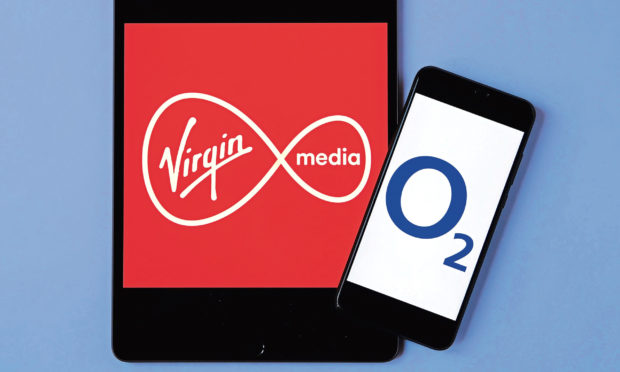An in-depth investigation into the £31 billion mega-merger between Virgin Media and O2 has been launched by the Competition and Markets Authority (CMA).
The phase two investigation follows a request from the two telecoms firms for the watchdog to give the deal the green light quickly.
Under a “fast-track” process, investigators from the CMA will look at whether the deal could lessen competition for UK customers of the mobile phone and broadband giants.
The CMA is “concerned that, following the merger, Virgin and O2 may have an incentive to raise prices or reduce the quality of these wholesale services, ultimately leading to a worse deal for UK consumers”.
It previously blocked a merger between O2 and rival network Three, although it waved through BT’s deal with EE.
A decision to launch a fast-tracked probe comes whenever there is sufficient evidence at an early stage of an investigation for the CMA to conclude there is a realistic prospect that a deal will result in a substantial lessening of competition in one or more markets.
Evidence will be submitted by the networks’ parent companies, Liberty Global, which owns Virgin Media and Virgin Mobile in the UK, along with Telefonica, which owns O2.
The CMA said it would publish an issues statement setting out in detail the aspects it expects to investigate “in the coming weeks”.
Interested parties will then have the opportunity to present their views on the merger and the issues to be examined.
The merger, first announced in May, would bring together O2’s 34 million customers on its mobile network with Virgin’s 5.3 million broadband, pay-TV and mobile users.
The deal, which is expected to close around the middle of 2021, values Virgin Media at £18.7bn and O2 at £12.7bn.
At the time the joint-venture plan was announced, the companies said it would create a “full converged platform” for customers, and deliver an investment of £10bn in the UK over the next five years.
They also said it would create 4,000 new jobs and 1,000 apprenticeships.
Telefonica said combining O2’s “number one” mobile business with Virgin Media’s superfast broadband network and entertainment services would be a “game-changer” in the UK at a time when demand for connectivity had “never been greater or more critical”.
The CMA was granted permission to investigate the deal only after the European Commission handed over the case in November.
Under European law, the biggest mergers are generally dealt with by the commission’s regulators in Brussels.
But the CMA asked officials in Brussels to hand the case back because it primarily impacted only UK customers and findings would not emerge until after the Brexit transition period.
Rocio Concha, director of policy and advocacy at consumer group Which?, said: “The proposed merger of two of the biggest players in the UK telecoms market could have a big impact on consumers, so it’s right that the competition regulator carefully reviews the situation.
“This merger should only be allowed to go ahead if it delivers good outcomes for consumers such as better service or more competitive pricing.”
